Oceans
-
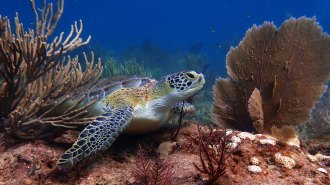 Climate
ClimateExtreme ocean heat off Florida has ebbed. But for marine life, the danger remains
After the recent heat wave, corals have received too much heat too early in the summer, and other sea life could see lingering effects too.
-
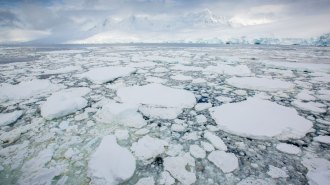 Climate
ClimateAntarctic sea ice has been hitting record lows for most of this year
Since hitting a record low minimum back in February, the amount of Antarctic sea ice has stayed well below normal all year.
-
 Earth
EarthIrrigation may be shifting Earth’s rotational axis
Computer simulations suggest that from 1993 to 2010 irrigation alone could have nudged the North Pole by about 78 centimeters.
By Sid Perkins -
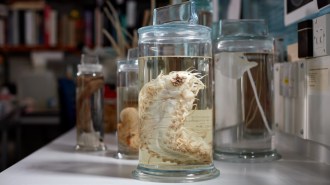 Life
Life5,000 deep-sea animals new to science turned up in ocean records
Scientists compiled a list of animals unknown to science that live in a deep-sea Pacific Ocean ecosystem targeted for mining exploration.
By Jude Coleman -
 Life
LifeIn one lake deep under Antarctica’s ice, microbes feast on ancient carbon
Microorganisms living in a lake beneath the ice sheet in West Antarctica feed on ocean carbon that was deposited 6,000 years ago.
By Freda Kreier -
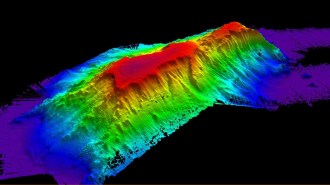 Oceans
OceansSatellite data reveal nearly 20,000 previously unknown deep-sea mountains
By looking for tiny bumps in sea level caused by the gravity of subsurface mountains, researchers have roughly doubled the number of known seamounts.
-
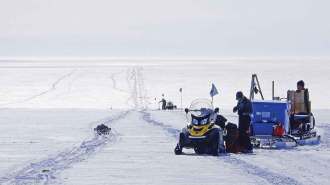 Earth
EarthA massive cavern beneath a West Antarctic glacier is teeming with life
A subglacial river has carved out the cavern beneath the Kamb Ice Stream, a West Antarctic glacier, and may be supplying nutrients necessary for life.
By Douglas Fox -
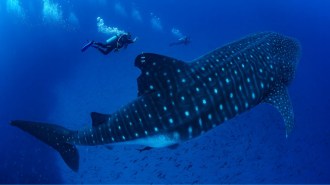 Oceans
Oceans‘Jet packs’ and ultrasounds could reveal secrets of pregnant whale sharks
Only one pregnant whale shark has ever been studied. New underwater techniques using ultrasound and blood tests could change that.
-
 Oceans
Oceans50 years ago, researchers discovered a leak in Earth’s oceans
An analysis of oceanic rocks hinted that ocean water drains into Earth’s mantle. How much makes it back into the ocean remains unclear.
-
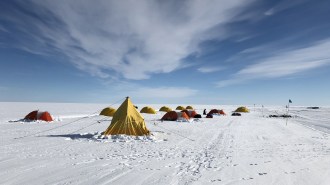 Climate
ClimateMany Antarctic glaciers are hemorrhaging ice. This one is healing its cracks
Scientists have explored the recesses of an Antarctic glacier that is currently stable, helping improve predictions of the continent’s fate.
By Douglas Fox -
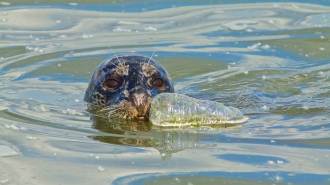 Oceans
Oceans50 years ago, scientists discovered the Great Pacific Garbage Patch
In 1973, plastic bottles adrift in the North Pacific alarmed scientists. Fifty years later, more than 1.8 trillion pieces of plastic litter the area.
By Demian Perry -
 Climate
ClimateRapid melting is eroding vulnerable cracks in Thwaites Glacier’s underbelly
Thwaites is melting slower than thought, but the worst of it is concentrated in underbelly cracks, threatening the Antarctica glacier’s stability.
By Douglas Fox